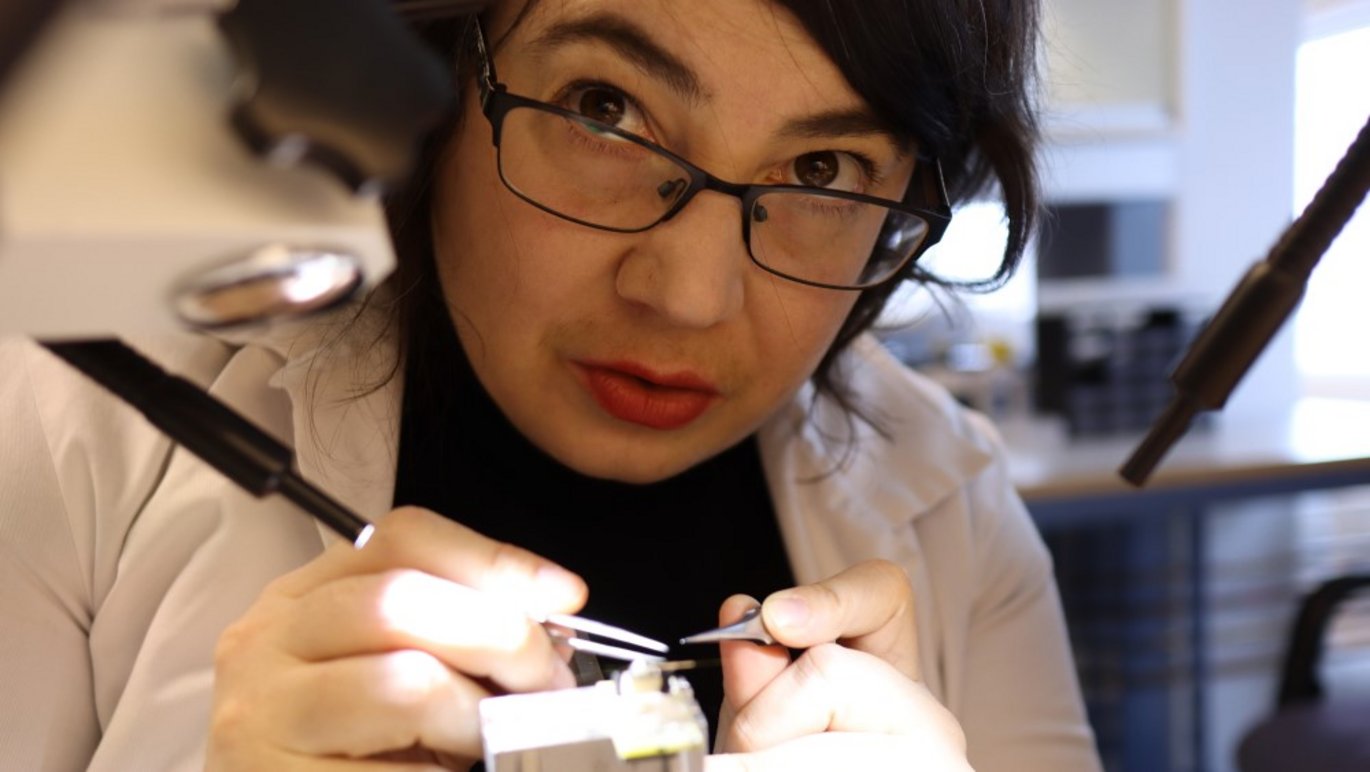ERC Starting Grant to Charlotte Boccara
Charlotte Boccara, Group Leader at NCMM, is awarded 1.5 million euros for the project SleepCog. The aim is to determine how important sleep is for the healthy development of the brain.

Article originally published at NCMM website: https://www.med.uio.no/ncmm/english/news-and-events/news/2023/erc-starting-grant-to-charlotte-boccara.html
We've all experienced what too little sleep feels like. Eyelids that become heavy. Fatigue, short temper and poor concentration. Fortunately, most of the symptoms disappear after a good night's sleep.
But what happens when we experience too little sleep over longer periods of time? And what if this happens when we are children, which is a stage in our lives where our brains develop the most?
Charlotte Boccara at the Center for Molecular Medicine Norway (NCMM) hopes to answer this with the project SleepCog. It has been awarded the Starting Grant of 1.5 million euros by the European Research Council (ERC). This amounts to more than 17 million NOK.
– We know that sleep is particularly important for children and adolescents. This is also a time when the brain is most plastic. Therefore, poor sleep during this period can potentially have a major impact on a child’s development in the long term, both physically and mentally, says Boccara.
– With the SleepCog project, we plan to uncover the consequences of poor sleep on brain development. Among other things, we will take a closer look at whether sleep can have a preventive effect against developmental disorders in children.
Ground-breaking technology gives insight into what happens in the brain when you sleep
Previous support from the Norwegian Research Council for young, talented researchers has been important for laying the groundwork for the SleepCog project. With support from ERC, Boccara will now develop innovative technology that will allow the researchers to measure sleep patterns in animals in a whole new way.
– SleepCog brings together skilled researchers from complementary backgrounds, to develop ground-breaking technologies and instruments to measure and manipulate sleep. We have with us neuroscientists, physicists, computer scientists, engineers, psychologists, pharmacists, molecular biologists and medical doctors, to name a few. We can call this a highly multidisciplinary project, says Boccara.
Together, they will now develop tools that will give them unique insight into the sleeping brain, and bring us a little closer to an answer to the question: why do we sleep?
A greenhouse for young, talented researchers
NCMM is a national research centre, and part of the Nordic EMBL partnership for molecular medicine. An important goal for the center is to act as a greenhouse for young, talented researchers in molecular medicine, biotechnology and translational research.
– I wish to whole-heartedly congratulate Charlotte for this prestigious grant! It is an important milestone in her career and a good example of what can be achieved by combining outstanding individual talent and systematic support for early career researchers, says Janna Saarela, director of NCMM.
She also extends her gratitude to the neuroscience colleagues at the Nordic EMBL Partnership sister node, DANDRITE, and at EMBL Rome for their important support in the final preparation steps in the application process.
– I am sure that the ground-breaking research Charlotte will do through SleepCog will have great impact on the research field, NCMM and the University of Oslo, concludes Janna Saarela.